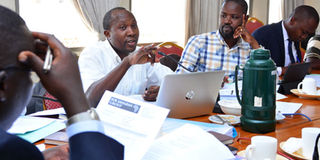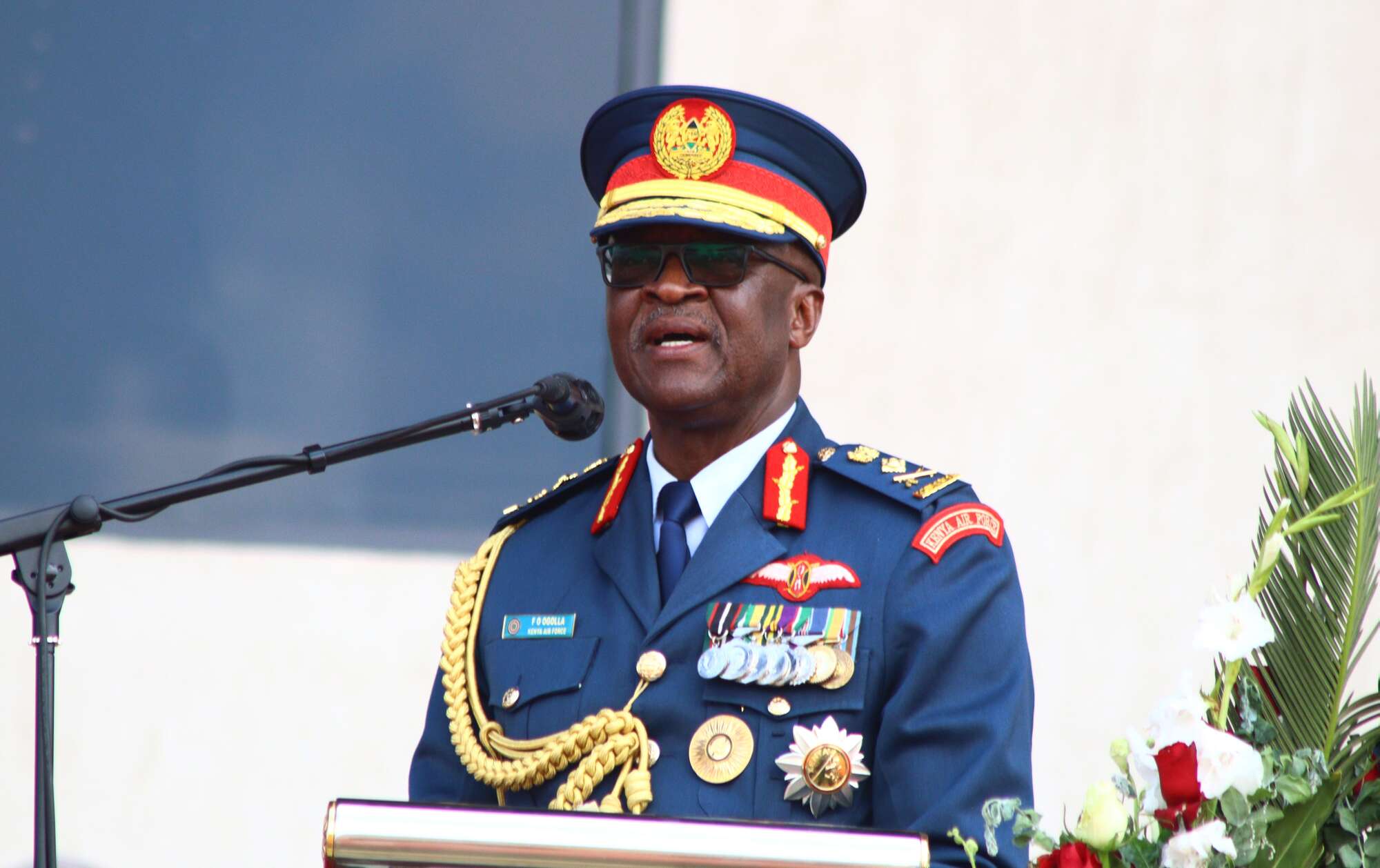What committee report recommended on UTL

Inquiry. Budadiri West MP Nathan Nandala Mafabi (2nd left) during the UTL probe in 2016. PHOTO BY ERIC DOMINIC BUKENYA
What you need to know:
- UTL had borrowed from different banks money to a tune of Shs381.9b without an investment plan.
- UTL had tax arrears of Shs89.2b owed to Uganda Revenue Authority and Shs18.3b to National Social
- Security Fund. The company’s total assets had declined from Shs309.28b in 2009 to Shs204.31b in 2014.
Kampala. Following a statement by Budadiri West MP Nathan Nandala Mafabi that Uganda Telecom Limited (UTL) was being mishandled and was plundered into losses, the House instituted a seven-man select committee chaired by Mr Okin Ojara (Chua West )to probe the company.
In the report presented to Parliament in May 2017, the committee made a series of recommendations after finding out that UTL had been mismanaged.
The MPs called for a forensic audit into how divestiture account was utilised, the bank loans which led to mortgaging of UTL properties, payment of Shs80b as management and consultancies fees to majority shareholders and Shs62.91b down streamed to UTL during the period of January 2011 to May 2012.
Parliament also recommended that individuals in UTL be found liable for selling company assets in a non-transparent process, and for payment of money to a company called Bandwidth and Cloud Services (BCS) Ltd without any justified basis.
The report adopted by Parliament recommended that Mr Stephen Kaboyo, Mr Moses Mwase, Mr Ali Bin Amir, Mr Wafik Al Shater, Ms Joanna Roche, Mr Khalid Torapolsi, Mr Steward Andrew Simpson and Mr Godfrey Kisseka, the then acting managing director be held liable for the sale of UTL’s prime property LRV 718 Folio 16 Plots 41-47 on 5th Street Industrial Area.
Others implicated were Mr Mark Shoebridge, the UTL managing director at the time of the probe, and his chief finance officer, Mr James Wilde.
After realising that the Uganda Communications Communication (UCC) had withdrawn the Spectrum, Frequencies and Numbering codes from UTL for failure to comply with license obligation, Parliament recommended that in case of “the assets be clearly put on the Government Asset Register to guard them from being sold or misused by unscrupulous people.”
Parliament in another recommendation argued government to be cautious in taking on the management of UTL to avoid litigation because the company had accumulated debts to a tune of Shs700b and needed at least Shs500b to revamp the dilapidated network.
At the time of the probe, it was found that the MD of UTL appointed by the Libyans between 2002 and 2006 was taking home a salary of $28,000 (about Shs102.1m) while the nine board members were each earning $25,000 (about Shs91.1m) despite being “inexperienced and incompetent”.
Revenues of ULT increased from Shs45.59b to Shs205.51b from 2000 to 2008 fiscal year but from 2009 to 2014 the revenues declined from Shs193.6b to Shs118.6b.
UTL had borrowed from different banks money to a tune of Shs381.9b without an investment plan.
UTL had tax arrears of Shs89.2b owed to Uganda Revenue Authority and Shs18.3b to National Social Security Fund. The company’s total assets had declined from Shs309.28b in 2009 to Shs204.31b in 2014.
Minority report recommendations
Mr William Nzoghu (Busongora North) also presented a minority report with the following recommendations:
Government should allow UTL to be managed or probably be dissolved legally to avoid burdening the innocent taxpayers with bearing the debts and losses to a tune of over Shs700b.
The Auditor General should examine how the board members- Mr Ben G. Mbonye, who was chairman in 2011, Mr Christopher Mugisha, a member representing government, and Mr Donald Nyakairu, who was acting MD, utilised funds to a tune of $2.7m (about Shs9.91b) .
The Inspector General of Government investigates the beviour and conduct of Mr Godfrey Mutbabazi, the UCC executive director, for conflict of interest.
What officials say
Otaremwa Otuhumurize, UTL technical consultant:
“All the creditors must be treated equally and, therefore, we cannot only pick [to pay] UCC and leave the other creditors behind. We shall pay all the creditors once the administration process is over and a new investor buys the company.”
Godfrey Mutabazi, UCC executive director: “By not being connected to this system (Intelligence Network Monitoring System), UTL could expose the country to security risks since traffic through the [its] network is not effectively monitored by the security agencies.”
Evelyn Anite, State Minister for Privatisation and Investment: “The process is on. The Attorney General is working on the document because the president advised us to follow all the legal requirements and once that is completed, he will be sacked.”



